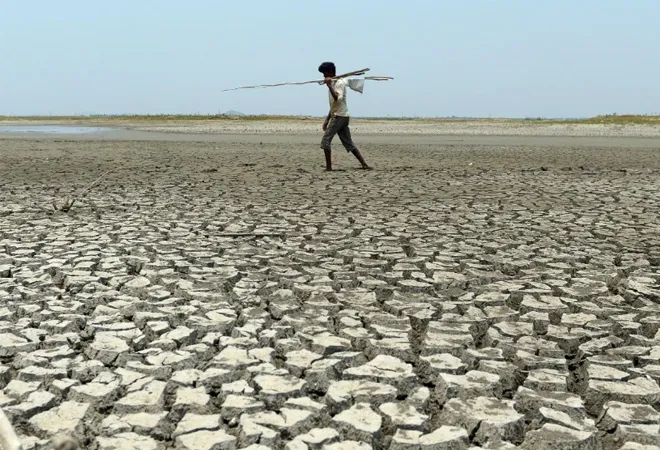-
CENTRES
Progammes & Centres
Location
UN Secretary General links WMO report with Earth Day 2023 slogan—‘invest in our planet’

The last consecutive eight years, 2015-2022, were the eight warmest years on record globally, according to the State of the Global Climate 2022 Report (1), which released by the World Meteorological Organization (WMO) on Friday, the 21st of April, in Geneva, just ahead of World Earth Day on 22 April 2023. Incidentally the Paris Agreement (3), which serves as the fulcrum for ongoing global negotiations on climate change, was inked in 2015.
The report pointed out that the situation could have been far worse if the La Niña weather event had not occurred in the past three years, which has a cooling effect on the weather system. In response to the report, UN Secretary-General, António Guterres, vindicated the need to undertake massively scaled-up investments in adaptation and resilience (2), particularly for the most vulnerable countries and communities who have done the least to cause the crisis.
The Paris Agreement has not been able to equitably phase-out fossil fuels that are predominantly responsible for the climate crisis, underlining that the world needs a new global framework in the form of a Fossil Fuel Treaty to complement the 2015 climate agreement
Climate experts have pointed out that the finding of the latest WMO report, rather the outcomes of it, vindicate what civil society has been complaining about all along—that most industrialised and emissions-belching countries have not been walking the talk with their climate commitments and carrying out their responsibilities.
It is evident that the Paris Agreement has not been able to equitably phase-out fossil fuels that are predominantly responsible for the climate crisis, underlining that the world needs a new global framework in the form of a Fossil Fuel Treaty to complement the 2015 climate agreement to drive the green transition through international cooperation and solidarity.
Harjeet Singh, head of Global Political Strategy of Climate Action Network International who recently participated in the Loss and Damage UN transitional committee meeting, reasoned that the current climate impacts are a result of historical greenhouse gas emissions from the industrialised nations and they must phase-out fossil fuels faster, and support developing nations through adequate finance for ambitious climate actions.
Climate records tumbled
Apart from record mercury rise, several other climate records have tumbled in 2022 shows the report:
Climate concern gets bigger as other crises piggyback
The heightening climatic concerns have been accepted by WMO as, according to WMO Secretary-General Prof. Petteri Tallas, the WMO annual report has once again brought focus on how climate change continued to increase its ambit in 2022 (2), right from mountain peaks to ocean depths. Droughts, floods, and heatwaves affected communities on every continent including India and cost the world economy many billions of dollars, said the report exploring the economic angle of the climatic damages. According to the report, Pakistan alone has lost US $30 billion for its flood-related impact while Australia lost US$ 4 billion.
The report also explained how hazardous climatic impacts and extreme weather events drove new population displacement and worsened conditions for many of the 95 million people already living in displacement at the beginning of 2022.
Incidentally, all does not seem to be lost as the WMO assessment recognised the, “collaboration amongst UN agencies,” which has proven to be very effective in addressing humanitarian impacts induced by extreme weather and climate events, especially in reducing associated mortality and economic losses.
The report also highlighted the combined impact of climatic drivers with pandemic pressure as well as conflicts across the world, as it pointed out that rising undernourishment has been exacerbated by the compounded effects of hydrometeorological hazards and COVID-19, as well as of protracted conflicts and violence.
The report also explained how hazardous climatic impacts and extreme weather events drove new population displacement and worsened conditions for many of the 95 million people already living in displacement at the beginning of 2022.
The climate analysts emphasised that while the world has, “the tools, the knowledge, and the solutions,” it probably lacks in pace of implementation; and they pointed out that unless accelerated climate action—with deeper, faster emissions cuts to limit global temperature rise to 1.5 degree celsius—is undertaken, the world will be in one-way track towards destruction.
Jayanta Basu is an environment correspondent of The Telegraph, ABP; Editor ,The Plural Environment News Media; visiting faculty, Calcutta University; and South Asian Editor, The Climate TV Channel, Canada.
The views expressed above belong to the author(s). ORF research and analyses now available on Telegram! Click here to access our curated content — blogs, longforms and interviews.